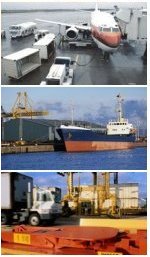

 |
 |
 |
Articles & Information<<Back to Articles/Information Index>> PARALLEL IMPORTATIONS OF TRADEMARKED GOODSA recent Federal Court of Australia decision has opened the door to the possibility of trademarks being continued to be used as a way of preventing or restricting parallel importation of products into Australia. Parallel importation refers to the importation of genuine branded products from foreign sources for resale in Australia. These ‘grey imports’ usually occur outside of the usual distribution channels and are, of course, not the same as counterfeit products. Generally parallel importation into Australia is not restricted by law due mainly to changes to the Australian Copyright Act. However, there have been a number of legal cases concerning whether a foreign brand owner may assign the Australian registered trademark to a local agent or distributor as a way of preventing parallel importation and providing full exclusivity of supply in the territory. The Trade Marks Act 1995 provides a defence to any infringement action by stating in Section 123 that a person does not infringe a trademark “if the trade mark has been applied to, or in relation to, the goods by, or with the consent of, the registered owner of the trade mark.” The intention of this section would appear to be to allow importation where the brand owner consented to sell the goods overseas in the first place. Unfortunately, contrary to this basic intention, this provision has been understood and applied in different ways. In the recent Federal Court decision of Brother Industries Ltd v Dynamic Supplies Pty Ltd [2007] FCA 1490 the Court determined that Dynamic Supplies could not rely on the section 123 defence in circumstances where it had purchased genuine but unmarked Brother printer drums from an overseas source and these products were packaged in boxes where the Brother logo had been applied without the consent of the parent company, Brother Japan. Dynamic Supplies had argued that the logos were applied with Brother Japan’s consent, by implication, because the goods were said to have been sourced from Brother in the United States. The Court rejected that such consent could be implied just because Brother United States was part of the same corporate group. At first glance, the facts of this case seem unique, and would not help a brand owner from using trademarks to protect against parallel importation because the dispute did not concern logos applied to the actual goods at the time of production. However, the Court’s reasoning appears to support the idea that S123 requires the local Australian trademark owner’s consent, which cannot be implied by virtue of the importer purchasing from a legitimate overseas source. This approach goes against the thinking in some earlier cases that have favoured the approach that it is the consent of the foreign brand owner at the time of production, and not the consent of the local trademark owner that is needed. Ultimately, the state of this aspect of the law in Australia is inadequate and it is much in need of reform. The lesson from this case is that it still may be possible for trademark owners to protect their markets in some instances. There may be compelling commercial reasons for a brand owner to assign a local trademark for the duration of a distribution or licensing arrangement. However, a company would face risks in seeking to rely upon the trademarks in Court as a way to defeat parallel importation. The only other way of protecting markets is to try and to have tightly drafted supply and distribution contracts and to carefully monitor what is happening within each market. Should any further assistance be needed on parallel importation and/or product distribution issues please contact Ross Becroft or Louis Gross on (03) 9866 5666 or by email, ross@grossbecroft.com.au or louis@grossbecroft.com.au.
|
|
|
Home |
Our Services |
Our People The information you obtain at this site is not, nor is it intended to be, legal advice.
Copyright ©2007 by Gross & Becroft lawyers . All rights
reserved. |